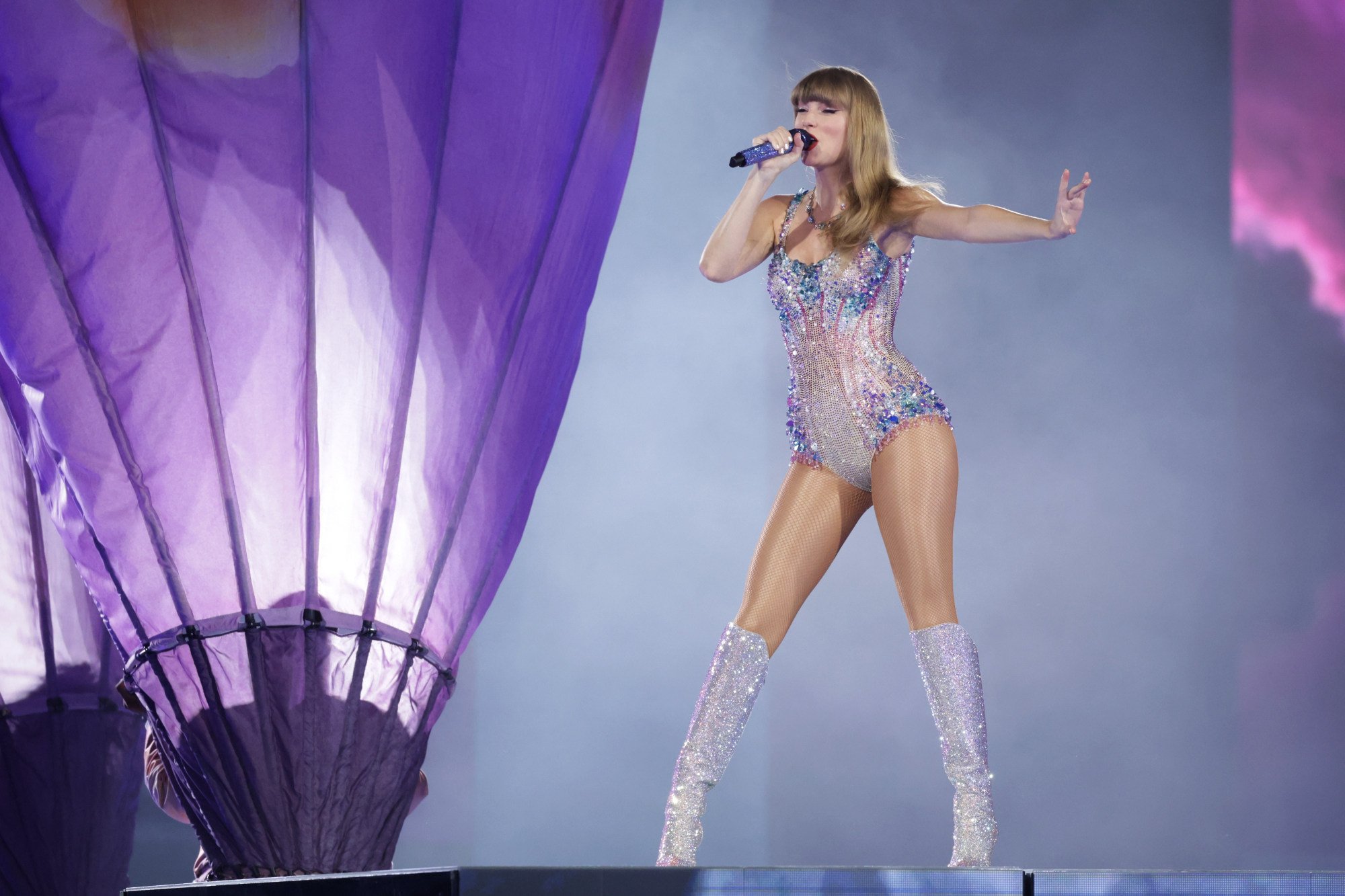
ComplexCon makes Asian debut in Hong Kong, lifting curtain on slew of mega events city is hosting in coming weeks
- Tens of thousands of visitors are expected to pour in for coming events that include Art Basel, a film festival and Sevens rugby competition
- Some lawmakers and economists have urged government to up its game to maximise much-needed economic benefits of such events
US-based pop culture festival ComplexCon had its Asian debut in Hong Kong on Friday evening, lifting the curtain on a slew of mega events the city is hosting in coming weeks to boost the post-pandemic economy and tourism.
From now until mid-April, Hong Kong will hold the 2024 World Triathlon Cup, International Cultural Summit, Fortune Innovation Forum, Art Basel and Art Central fairs, the 48th Hong Kong International Film Festival, and the Hong Kong Sevens rugby competition, among others.
While the hospitality sector previously expressed optimism that the mega events would give visitor numbers a shot in the arm, some lawmakers and economists urged the government to up its game to maximise much-needed economic benefits.
Tens of thousands of visitors are expected to pour in for coming events. In the case of ComplexCon, holding its first show outside the United States between Friday night and Sunday, 30,000 guests are expected. The most expensive tickets, costing HK$4,780 (US$612) per person for a three-day pass for concerts and carnivals, are sold out.
Another 40,000 spectators, locals and visitors, are expected to fill Hong Kong Stadium in Causeway Bay for the Sevens from April 5 to 7.
Gary Ng Cheuk-yan, a senior economist at Natixis Corporate and Investment Bank, said an indicator of the success of the mega events would be if they encouraged locals to stay and spend in Hong Kong, as well as attract tourists to the city.
“While some of the mega events are new, some are recurring ones from before the pandemic. We will need to look at whether they can attract high-spending visitors like they did before,” Ng said.
He added that the effects of such events required a long-term assessment, including whether the presence of art fairs still reflected Hong Kong’s status as an art trading hub or had other places and regions caught up with the city.
“We can see very strong government support and subsidies with these events right now, and they are reasonable as Hong Kong is still recovering from the pandemic,” he said.
“But in the future, when there is less subsidy, will these events still come to Hong Kong? That will be the litmus test of the city’s competitiveness.”

Ng said Hong Kong presently had an abundance of mega events, but there seemed to be a lack of focus and the direction was not clear, whereas Singapore in comparison had very targeted policies.
“Singapore does not have a lot of natural resources, so they will focus on concert tourism or event-based tourism,” he said, listing examples such as American pop diva Taylor Swift’s recent concerts or Formula 1 motor racing, which required longer-term planning.
Lawmaker Michael Tien Puk-sun called on the government to change the way it hosted mega events from subsidising them to having a deeper involvement through partnerships with organisers.
Hong Kong’s ‘Art March’ mega events may attract 4 million patrons: city official
He said the experience surrounding football superstar Lionel Messi’s no-show in a Hong Kong game and Swift’s Singapore concerts – her only dates in Southeast Asia – showed that the existing way of giving away subsidies was not enough.
“The government’s practice of dishing out subsidies and letting organisers of events, such as the case of Tatler Asia hosting the Messi show, resulted in yielding nothing to Hong Kong,” he said.
“Such a mentality won’t make the government competitive. Can it take an investment approach such as forming a joint venture with organisers of events and reach a consensus on the level of commission payable to the government?”

In the case of Messi’s no-show, Tatler Asia withdrew its application for a HK$16 million government subsidy after the Argentinian superstar sat out a much-awaited friendly match against a local team in Hong Kong in February, sparking outrage.
Tien pointed to the investment in Hong Kong Disneyland Resort as an example, with the government owning a 52 per cent stake and the Walt Disney Company the rest.
Hong Kong sets aside HK$1.09 billion in drive for more tourism events
He said the government had invested HK$22.6 billion into the theme park debuted in 2005 and shared HK$9.5 billion losses of the theme park in the years to 2022, but the resort had yielded about HK$116 billion in economic benefits.
“Why can’t the government use the same mentality for mega events?” Tien said.
Undersecretary for Culture, Sports and Tourism Raistlin Lau Chun said on Wednesday that the government supported mega events through subsidies and the “M” Mark system for sporting occasions, Mega Arts and Cultural Events Fund and the Tourism Commission’s subsidy scheme.


